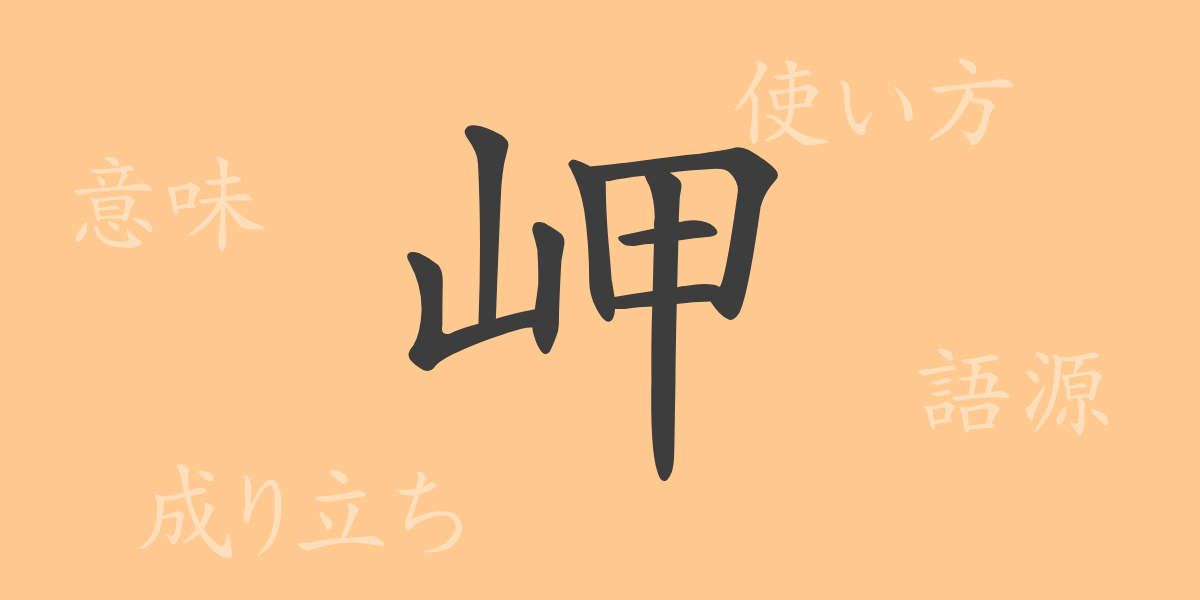The place where the sea embraces the land, the cape (misaki). Japan, being an archipelago surrounded by the ocean, is dotted with numerous capes. These may seem like mere geographical features, but in reality, capes have a deep history and culture embedded within them. In this article, we will focus on the common kanji “岬 (misaki),” exploring its origins, meanings, usage, pronunciation, and even expressions involving capes. Let us take you on a journey to uncover the allure of capes.
Origins of 岬 (misaki)
The origin of the word “岬 (misaki)” dates back to ancient Japanese, deriving from the natural process where the sea or river erodes the land, forming a protruding part. This distinctive terrain has been recognized as a landmark for navigation and an attractive spot for its unique scenery. Since ancient times, capes have played an essential role in the interaction between nature and humans.
Meaning and Usage of 岬 (misaki)
“岬 (misaki)” refers to the tip of the land protruding into the sea or lake. This term is used in various contexts such as geography, tourism, and poetry. On maps, it often serves as a landmark for navigation and is also used to indicate scenic spots as tourist attractions. In literary works, capes are sometimes depicted as symbols of farewell or departure.
Pronunciation, Stroke Count, and Radical of 岬 (misaki)
The kanji “岬 (misaki)” is known for its beauty and profound meaning in the list of commonly used kanji in Japan.
- Pronunciation: On’yomi “kou,” Kun’yomi “misaki”
- Stroke count: 8 strokes
- Radical: 山 (yama-hen)
Idioms, Proverbs, and Expressions Using 岬 (misaki)
“岬 (misaki)” appears in idioms, proverbs, and expressions. For example, the idiom “岬めぐり (misaki meguri)” means visiting various capes, expressing the enjoyment of travel and sightseeing. Additionally, the expression “岬を結ぶ (misaki wo musubu)” is used to mean connecting distant points. These expressions are integrated into the Japanese language, utilizing the geographical characteristics of capes.
Summary of 岬 (misaki)
“岬 (misaki)” is a word deeply connected to the Japanese people, from its formation process to its cultural significance and usage in language. Both geographically and poetically, capes play an important role in our lives and are cherished by many. We hope this article has helped you discover the multifaceted charm of capes and provided new insights.

























